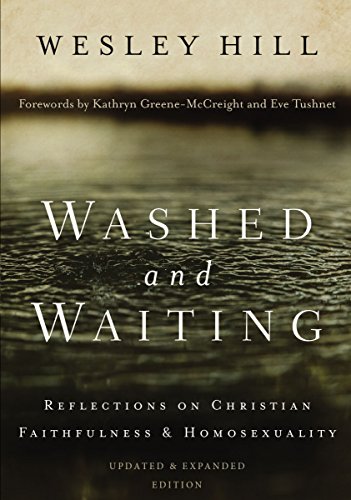By: Wesley Hill (Grand Rapids: Zondervan, 2010)

Summary:
“By the time I started high school, two things had become clear to me. One was that I was a Christian…. The second thing was that I was gay.” And so begins Wesley Hill’s memoir that chronicles his journey as a “celibate gay Christian.” Wes Hill achieves a great deal for a book barely more than 150 pages. There is autobiography, references to literature, Scriptural exegesis, and a prophetic charge for the Christian church to change its practices and attitude toward individuals struggling with same-sex attraction (SSA). Hill takes an orthodox stance, stating that homosexual sex does not align with God’s commands in Scripture. But he goes beyond just condemnation, for Hill speaks as a compassionate insider, giving hope to the celibate, the single, the abstinent, the lonely, and the shamed. The stance of his book is bolder than “love the sinner, hate the sin”; he explores the ways in which SSA relates to faith, desire, the church, and relationships.
Themes, Symbols, & Motifs:
- Prose and poetry. Hill rarely makes a claim without grounding it in a novel or poem, and this helps to soften and deepen his views, making them more relatable.
- Exegesis. He examines many specific passages (Rom 1:18-32; 1 Cor 6:9-10; 1 Tim 1:8-11) but then also relates them to the “context of a grand narrative” in Scripture.
- Story. What convinces Hill that acting on his homosexual desires is wrong is not individual passages of Scripture, but that those passages fit into Scripture’s story of what God is doing in Jesus Christ.
- Singleness/Celibacy/Loneliness. The remedy is “to feel God’s keeping presence embodied in the human members of the community of faith, the church.” But one must also feel the pain of loneliness: “Groaning is a sign of my fidelity.”
- Temptation. By not giving into the temptation to act on his desires, he states, “I became more fully alive, not less.”
- Sexual desire. He locates the desire more in a “mutual desire” for relationships with others rather than solely or primarily a sexual/physical expression.
Discussion Questions:
- What is the significance of the book’s title, Washed and Waiting?
- Hill insists on calling himself a “celibate gay Christian.” Why or why not is this helpful?
- Wes Hill expounds even further on these issues in his blog, Spiritual Friendship, a blog he began with friends of like mind. Are there posts from this blog with which you would disagree? Why?
- Hill quotes Dallas Willard, where Willard separates “[l]ooking and desiring” versus “looking to ” With regard to SSA (or really any sexual attraction), are there differences between action and attraction?
- “[T]he New Testament views the church—rather than marriage—as the primary place where human love is best expressed and experienced.” Is this correct?
- This book is applicable to and useful for individuals fighting any sin or temptation, not just SSA. How?
Drew Trotter